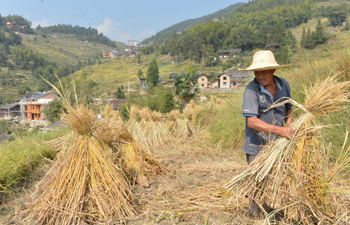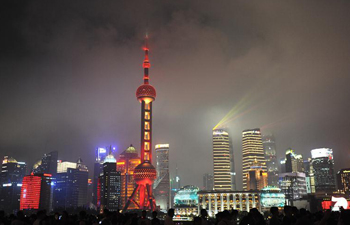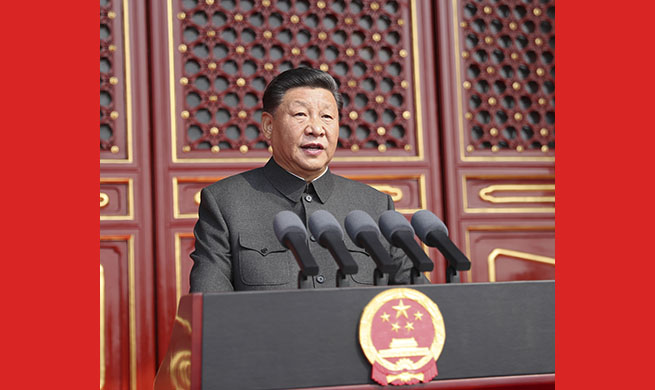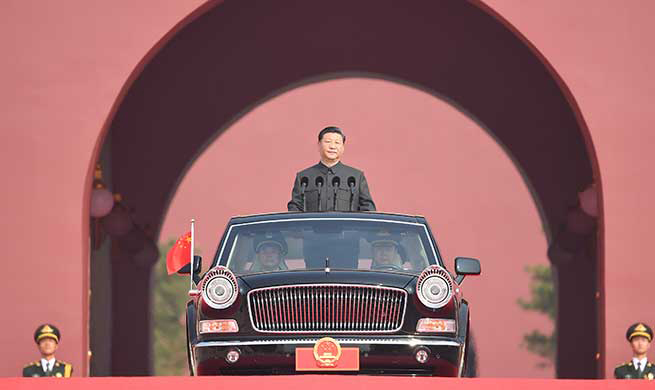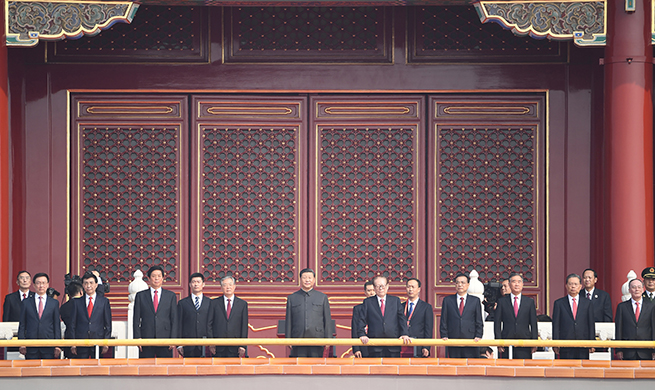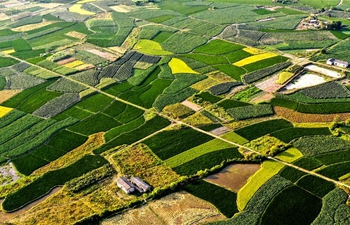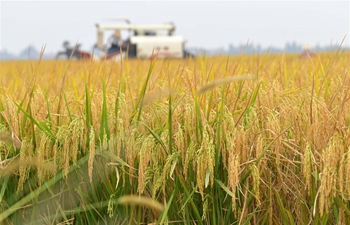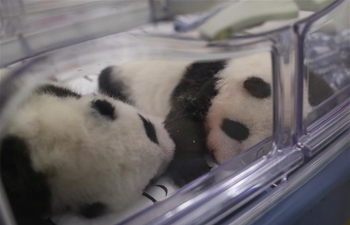by Burak Akinci
ANKARA, Oct. 5 (Xinhua) -- German automotive giant Volkswagen's decision to establish a new production unit in Turkey with an investment of around 1.54 billion U.S. dollars is expected to boost the recovering Turkish economy.
Ahead of a final decision that is expected very soon as negotiations are reported to be in the final stages, the German carmaker has established a subsidiary in Turkey's western province of Manisa, said the country's Trade Registry Gazette of Information Services Department on Wednesday.
Volkswagen Group will build the next-generation VW Passat and Skoda Superb midsize model lines at its new plant in Turkey. The factory will have a maximum annual production capacity of 300,000 vehicles, German and Turkish press reported.
The production is scheduled to start in 2022. The plant will focus mostly on export markets and create up to 5,000 jobs at the factory and surrounding suppliers, according to officials.
VW picked Turkey for the factory because of "positive macroeconomic conditions" including an 80-million population that rivals Germany's in size and its location amid growth markets, according to the company.
According to experts, this move, which is the single largest automotive foreign direct investment in Turkey since the late 1990s, was hailed by the Turkish government which is trying to steer the country out of its first recession in a decade.
"The automotive sector has links with many other sectors such as logistics, tourism, construction, defense and agriculture. Therefore, this investment decision will have a positive impact on Turkey's economy and also on employment," commented Yunus Furuncu, a researcher from the Ankara-based think tank the Foundation for Political, Economic and Social Research.
The expert argued that the investment decision also showed that despite its troubles since a currency turmoil in the summer of 2018, the nation's economy "offers more opportunities than many other economies."
"When political prejudices are put aside, investing in Turkey offers opportunities for businesses in terms of profitability and efficiency," said Furuncu.
Bulgaria, a European Union country, was reported to be in competition with Turkey for this new factory.
Turkey has a decades-long experience of manufacturing cars under foreign labels with qualified workforce and a well-developed supplier structure, mainly located in the northwestern province of Bursa, the country's automotive hub, with an annual capacity of around 2 million vehicles.
Turkey exports more than 80 percent of its production and ranks in the 15th place of global car manufacturers, according to official figures.
Other global automakers with an industrial footprint in Turkey include Fiat Chrysler, Renault, Ford, Toyota, Hyundai and Honda.
Head of Turkey's Automotive Dealers Association Murat Sahsuvaroglu said the choice of Turkey by the German giant showed "the confidence of the brand in Turkey's capacities and capabilities."
"We are extremely satisfied and excited about this major move. It's the first and biggest investment in the automotive industries for 22 years" since South Korean Hyundai decided to open a unit in Turkey, he noted.
Moreover, experts think that the latest investment would also enhance and help Turkey's efforts to mass produce its first indigenous car, a project delayed for several times due to technical and financial reasons.
In September, Turkey's Industry and Technology Minister Mustafa Varank said that the prototype of the country's first flagship electric car will be launched in December, two years after a joint venture of five local industrial giants was established to build it.
The prototype is an electric SUV, one of five different models to be produced by the joint venture. "Turkey will be the only country in our region that will be able to produce an electric SUV," Varank stated.
As a result of a 3-billion-dollar investment, Turkey is hoping to manufacture three models with five different bodies, namely sedan, hatchback, station wagon, sports and crossover. The mass production of the cars is set to begin in late 2022.
However, sources close to the project indicate that hundreds of millions of dollars is needed to complete the program, yet Turkey's current economic squeeze has raised expenses due to the weakened lira.
The government could soon step in to offer additional incentives such as major tax benefits and subsidies to push forward the project.






